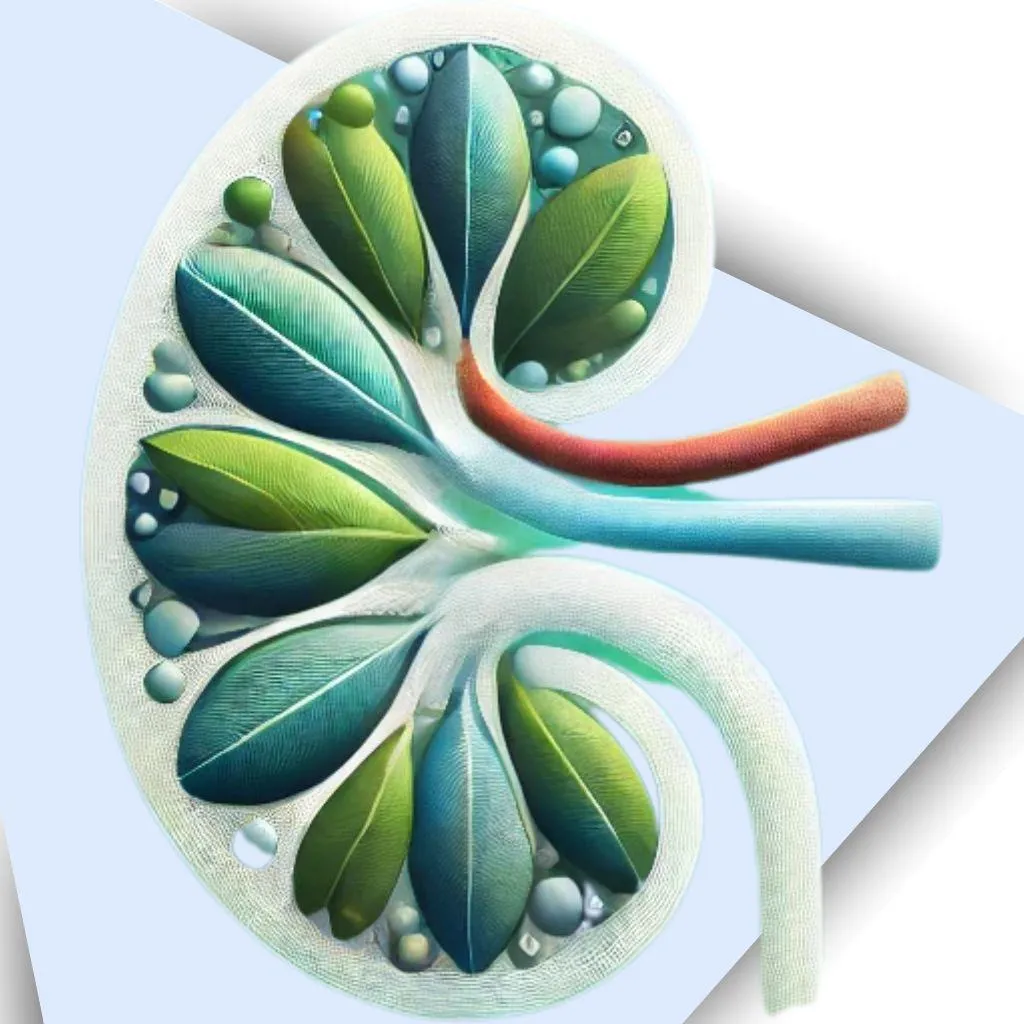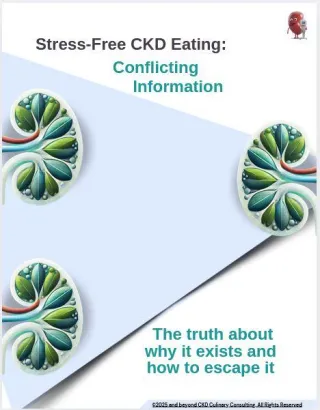
Get Your Free CKD Low Potassium
Fruit & Veggie Guide
A quick-reference guide to help you safely enjoy fruits and vegetables with CKD.

CKD Community Invite
You Don’t Have to Do This Alone

Stay In the Loop
Get tips, recipes, information, and updates to help you with your kidney diet.
Take a Free Look Inside the CKD Nutrition Program
See exactly how the program works before you join.
FAQs
Q: Why does CKD diet advice seem so conflicting?
A: Because most of what you see is incomplete, oversimplified, or outdated.
You’re handed lists of “don'ts” instead of real guidance on how to actually build meals.
The result? Confusion, frustration, and the sense that no one agrees.
The truth is, you haven’t been given the full story and that’s why it feels impossible to know what’s safe.
👉 Want the full breakdown? Download The Truth About Conflicting Information Guide

Q: Why is relying only on CKD recipes a problem?
A: Because it’s risky.
Recipes don’t teach you how to balance nutrients across your whole day, they just give you one meal. That means you could be unknowingly stacking up too much potassium, phosphorus, or sodium without realizing it.
What looks “kidney-safe” on paper may actually push you over your limits.
Relying on recipes keeps you dependent, confused, and vulnerable. If the recipe fits, great. If it doesn’t, you’re stuck and your kidneys pay the price.
👉 Find out why this trap is so dangerous (and how to break free) in The Recipe Reliance Trap Guide.

Q: What can I actually eat with CKD?
A: More than you think.
Most people are told what to avoid, but never shown how much actually fits.
The truth is, CKD eating isn’t about cutting out everything you love, it’s about learning balance, portions, and how to make foods work for your numbers and stage.
There’s a lot more freedom here than you’ve been led to believe.
👉 Discover how to open up your food choices in the What Can I Eat With CKD? Guide.

Q: What do eGFR and creatinine really mean for CKD?
A: If you’re new to kidney disease, eGFR and creatinine are two of the first numbers you’ll hear but rarely explained in a way that makes sense.
Doctors mention them, labs report them, but most people are left wondering: “What do these numbers actually tell me about my kidneys?”
Understanding them is the first step in understanding CKD itself.
👉 Get a simple, plain-language explanation in the eGFR & Creatinine Basics Guide.

Linda donates to Friends of Puerto Rico
© 2022 - 2026 CKD Culinary Consulting/How to Eat for CKD. All rights reserved.
Disclaimer: Linda Blaylock is not a state-licensed dietitian or nutritionist. She is a Certified Renal Nutrition Educator, Dietary Consultant, and CKD Chef with advanced training in renal nutrition management. All content is for educational purposes only and not a substitute for medical advice.
All content on this website is protected by U.S. Copyright laws and is the property of CKD Culinary Consulting/How to Eat for CKD.
You may not copy, reproduce, distribute, display, perform, modify, create derivative works, transmit, or otherwise exploit any content without prior written permission. Additionally, you may not distribute any content over any network, including a local area network, sell, offer for sale, or use the content to create a database. You are not permitted to alter or remove any copyright or other notices from the content on this website. Copying or storing any content, except as expressly provided above, is prohibited without prior written consent from the site owner or the copyright holder identified in the individual content’s copyright notice.
For permission to use the content on this website, please contact us.
